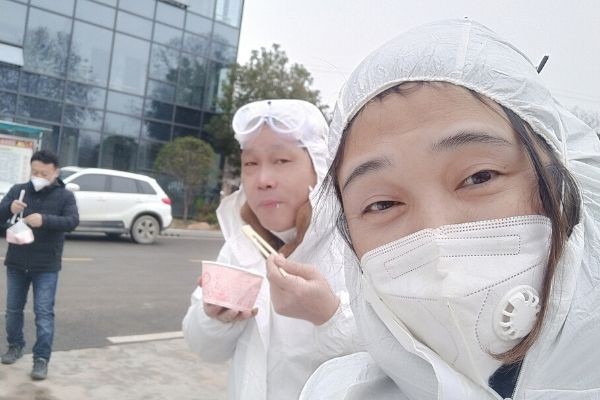
Scientists have grim news that will make people cringe more, the COVID-19 is more resilient than presumed. The coronavirus lifespan might be able to persist for more than a week on any surface, without cleansing. Because of this, the virus is spreading at an alarming rate.
Whether any person can get COVID-19 with contact from a contaminated surface, another is if the virus is on any object, then touching the mouth, nose, and eyes that lead to infection is unclear.
The lack of information about the COVID-19 is dumbfounding many researchers, as to control it successfully. To get the answers, they are looking to similar coronaviruses as templates to extrapolate more answers. The current contagion will get worse if there's no discovery of the anti-viral that will purge COVID-19 from the infected.
Longer coronavirus persistence is a threat to everyone
Researchers have reached the conclusion that pathogen of human origin will attach itself to surfaces at room temperature, lasting nine days when left alone. This has been determined by referencing all viruses of human or animal origin. One example is measles which can stay active on any surface for two hours. This parcel of information increases the need of sterilizing areas traced as the source of contamination.
The coronavirus lifespan for other surfaces that are not aluminum, wood, paper, plastic, and glass is four to five days, according to current findings. Still, more research needs to be done with the current rate of infection in ground zero.
Coronaviruses that comes from animals can only infect them, lasting longer than twenty-eight days. COVID-19 persists longer on surfaces that are in low-temperature ranges and if air humidity is high too. This was a statement made by Günter Kampf at the Greifswald University Hospital.
Disinfect areas to reduce spread of disease
One way to lessen the spread of the coronavirus is to decontaminate with more than just alcohol. Researchers suggest solutions like sodium hypochlorite, and hydrogen peroxide will keep cleansing surfaces of the virus effectively. Hospitals and other areas with high concentrations of people should be under decontamination procedures to stave off further viral transmissions.
These procedures were used in the SARS and MERS contagions as effective, so it is done again in the time of COVID-19. Virologist Eike Steinmann from Leibniz University Hanover said that several types of coronaviruses were investigated, the result was all the same.
COVID-19 was not part of the study, and all the data is based on similar viruses, which should be noted. If hands are infected with coronavirus contact or if touching a surface is an immediate transmission, more data is needed.
Coronavirus is indeed worse compared to MERS, which is not so virulent as other coronaviruses, and SARS, which spreads faster with sneezing or coughing. Anyone can get infected days later if they touch an contaminated surface. Lingering viruses on surfaces are more dangerous than patients sick with the virus.
All the new information that the coronavirus lifespan is longer and persists on surfaces days after is a serious threat to everyone. Disinfecting hands and blasting common areas with disinfectant will be crucial in containing the spread of infection.
Medical translation at the forefront in supplying information
Part of the frontline in ensuring that everyone around the world has access to the latest research and findings on the coronavirus are medical translators and medical interpreters. During the times of global health crises, the role of the medical translator and interpreter couldn't be more significant and necessary. Researchers around the world need immediate access to the most up-to-date developments from their cross-border colleagues.
The necessity and critical of medical translation have been proven time and time again in past global health concerns. With researchers having access to the latest translated findings, policy-makers are better equipped to form sound public health policies than fall prey to possibly alarmist unproven information.
Related article: The Coronavirus, Global Pandemics and the Role of the Medical Translator and Interpreter
Stay informed with the latest credible information
In times of uncertainty, citizens must be vigilant and base their actions on credible information. Researchers and medical translators alike are working round the clock to ensure that the public and their respective governments are provided with the latest credible information. However, this is easier said than done when considering the waves of unverified information about the coronavirus circulating around the world.
Although there is indeed plenty to uncover about the coronavirus itself, what information the world can guarantee is how to prevent and contain its transmission. That being said, thorough handwashing and social distancing among others are proven and up-to-date methods of lessening your chances of being infected. Although an actual cure is still far from being successfully tested, manufactured, and shipped, we can find assurance with the timeless proverb, 'an ounce of prevention is worth a pound of cure'.








